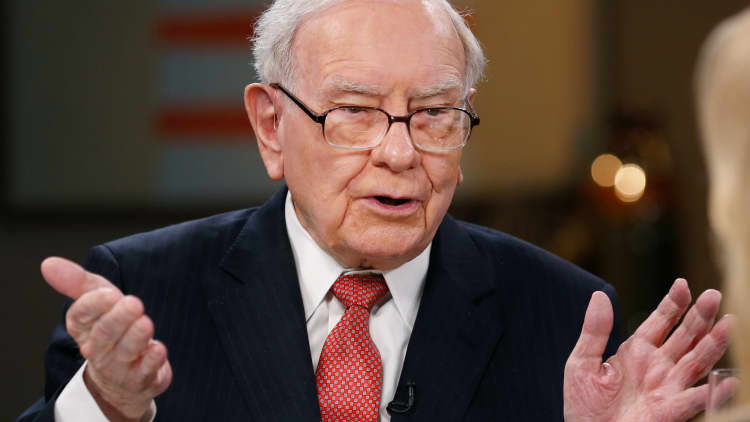
An asset class that Warren Buffett once labeled "financial weapons of mass destruction" has fallen to a third of the level it was during the financial crisis.
Derivatives, or contracts based on the price movements of underlying assets, declined to a gross market value of about $11 trillion at the end of 2017, according to the Bank for International Settlements. That total comes from the largely unregulated over-the-counter market, where most derivatives are traded. The level was a decline from $15 trillion at the end of 2016 and $13 trillion in mid-2017.

They were used heavily in the years leading up to the financial crisis. Investors bet big on bundled mortgage bonds that eventually imploded, bringing down multiple major financial institutions and causing the worst economic downturn since the Great Depression.
At their peak, total OTC derivative value hit just shy of $35 trillion in the second half of 2008, just months before Lehman Brothers collapsed, the seminal moment of the crisis, according to the BIS:
Growth of derivatives through the years:
Years earlier, Buffett had warned about the consequences of heavy derivative use, even though he has employed them himself at times.
"The derivatives genie is now well out of the bottle, and these instruments will almost certainly multiply in variety and number until some event makes their toxicity clear," the Berkshire Hathaway CEO warned in his 2002 annual report. "In my view, derivatives are financial weapons of mass destruction, carrying dangers that, while now latent, are potentially lethal."
More recently, billionaire investor Carl Icahn also has warned of their danger, telling CNBC in Feburary that exchange-traded products using leverage to amplify returns pose the latest challenge.
Derivative buildup began in 2000 and rose more than 11 times higher than the $3 trillion or so value back at the turn of the century. While legitimately used to hedge other investments, they exploded during the crisis as a way to play the subprime mortgage market. Collateralized debt obligations in particular were a popular high-yielding vehicle that helped account for the surge.
However, regulators have clamped down on bank risk, and Wall Street institutions have reduced their exposure to the instruments.
Total notional value of the contracts also has fallen. That total peaked at $710 trillion in 2013, but has dropped to $532 trillion since.


